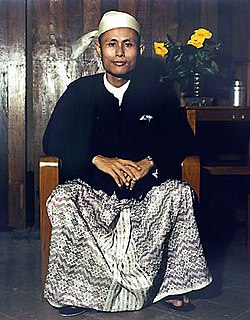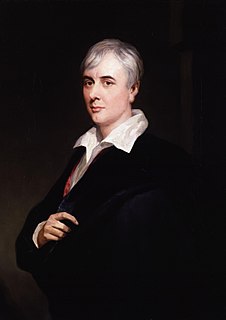A Quote by Arthur M. Schlesinger, Jr.
To say that there is a case for heroes is not to say that there is a case for hero worship. The surrender of decision, the unquestioning submission to leadership, the prostration of the average man before the Great Man -- these are the diseases of heroism, and they are fatal to human dignity. History amply shows that it is possible to have heroes without turning them into gods. And history shows, too, that when a society, in flight from hero worship, decides to do without great men at all, it gets into troubles of its own.
Quote Topics
Related Quotes
I am well aware that there is such a great craving in man for heroism and the heroic, and that hero worship forms not a small motif in his complex. I am also aware that, unless man believes in his own heroism and the heroism of others, he cannot achieve much or great things. We must, however, take proper care that we do not make a fetish of this cult of hero-worship, for then we will turn ourselves into votaries of false gods and prophets.
Hero-worship is the deepest root of all; the tap-root, from which in a great degree all the rest were nourished and grown . . . Worship of a Hero is transcendent admiration of a Great Man. I say great men are still admirable; I say there is, at bottom, nothing else admirable! No nobler feeling than this of admiration for one higher than himself dwells in the breast of men.
So many misconceptions surround the notion of heroism. Far too many categorize a hero as a champion on the battlefield, a commander of legions, a master of rare talent or ability. Granted, there have been heroes who fit those descriptions. But many men of great evil as well. Heed me. A hero sacrifices for the greater good. A hero is true to his or her conscience. In short, heroism means doing the right thing regardless of the consequences. Although any person could fit that description, very few do. Choose this day to be one of them." (Beyonders - A World Without Heroes)
I'm saying to be a hero is means you step across the line and are willing to make a sacrifice, so heroes always are making a sacrifice. Heroes always take a risk. Heroes always deviant. Heroes always doing something that most people don't and we want to change - I want to democratise heroism to say any of us can be a hero.
I'm saying to be a hero it means you step accross the line and are willing to make a sacrifice, so heroes always are making a sacrifice. Heroes always take a risk. Heroes always deviant. Heroes always doing something that most people don't and we want to change - I want to democratise heroism to say any of us can be a hero.
It is precisely that requirement of shared worship that has been the principal source of suffering for individual man and the human race since the beginning of history. In their efforts to impose universal worship, men have unsheathed their swords and killed one another. They have invented gods and challenged each other: "Discard your gods and worship mine or I will destroy both your gods and you!"
Unconsciously we all have a standard by which we measure other men, and if we examine closely we find that this standard is a very simple one, and is this: we admire them, we envy them, for great qualities we ourselves lack. Hero worship consists in just that. Our heroes are men who do things which we recognize, with regret, and sometimes with a secret shame, that we cannot do. We find not much in ourselves to admire, we are always privately wanting to be like somebody else. If everybody was satisfied with himself, there would be no heroes.
The sublime can only be found in the great subjects. Poetry, history and philosophy all have the same object, and a very great object-Man and Nature. Philosophy describes and depicts Nature. Poetry paints and embellishes it. It also paints men, it aggrandizes them, it exaggerates them, it creates heroes and gods. History only depicts man, and paints him such as he is.
Heroes are necessary in order to enable the citizens to find their own ideals, courage and wisdom in the society. The hero carries our hopes, our aspirations, our ideals, our beliefs. In the deepest sense the hero is created by us; he or she is born collectively as our own myth. This is what makes heroism so important: it reflects our own sense of identity and from this our own heroism is molded.
The hero is known for achievements; the celebrity for well-knowns. The hero reveals the possibilities of human nature. The celebrity reveals the possibilities of the press and media. Celebrities are people who make news, but heroes are people who make history. Time makes heroes but dissolves celebrities.




































